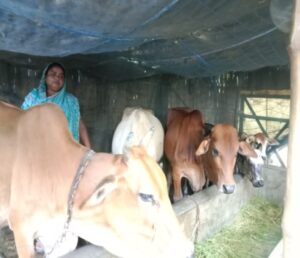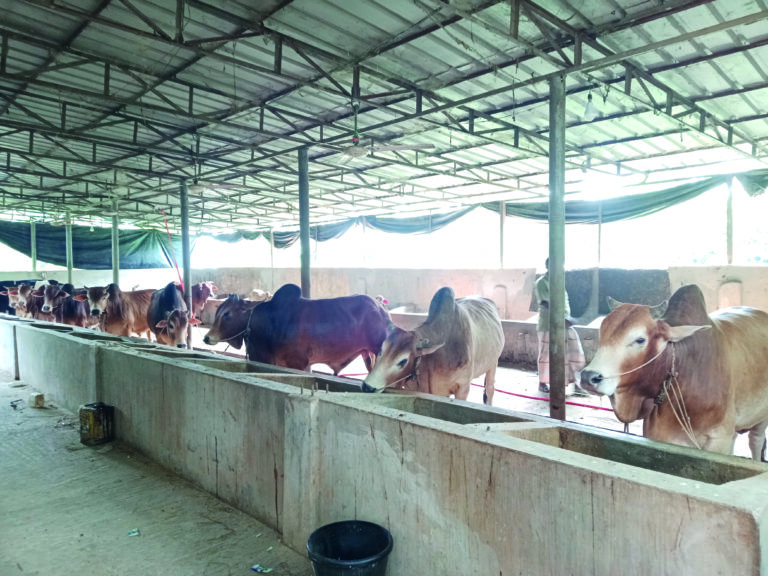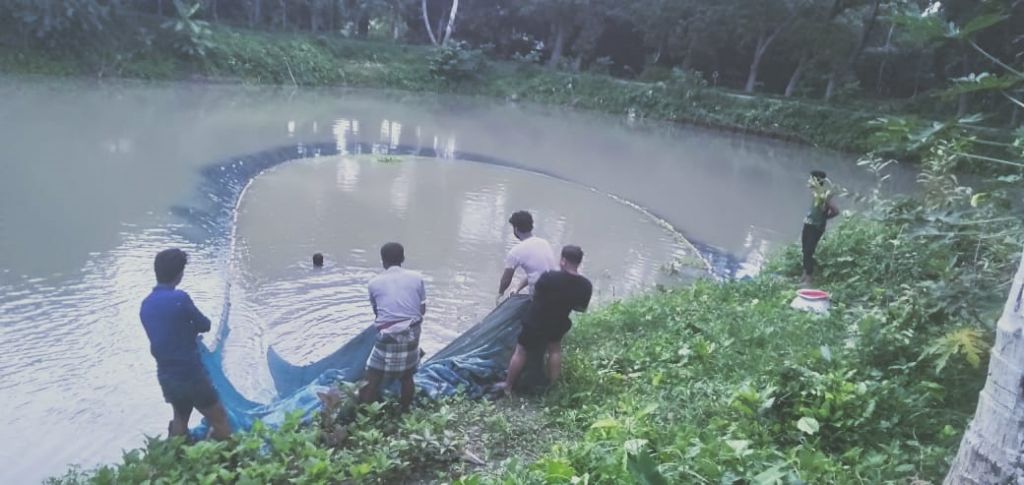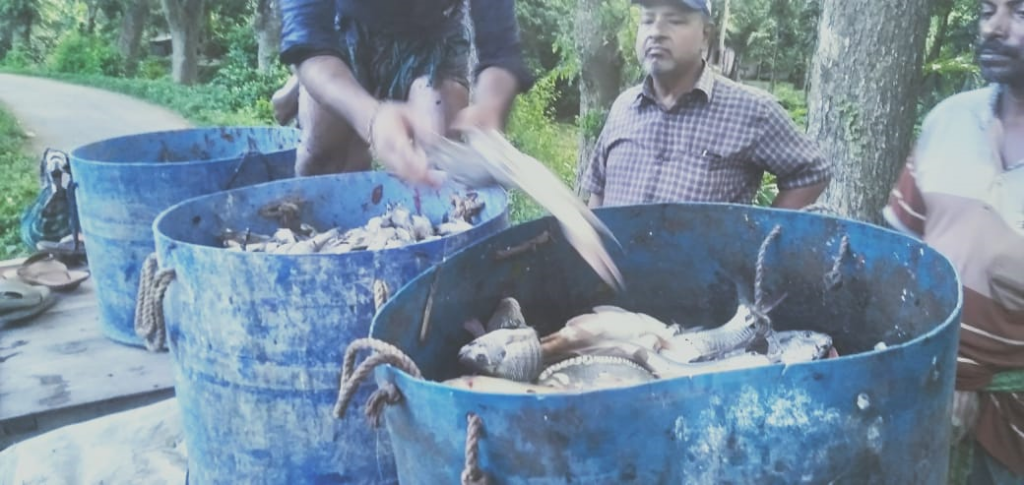Livestock and Fisheries Program
Goat Breeding and Rearing
GUP facilitates pisci-culture and animal husbandry for greater sources of income and nutrition in the community by increasing availability of nutritional foods, generating new economic activities and providing a good source of livelihoods. From GUP Livestock Centres, cows and goats are inseminated through high breed bulls and black Bengal bucks for production of better breeds of cows and goats by the community people. And from Fish Nursery, fish fry are released in the nursery pond, after taking care of few days, the fish fingerlings are then distributed /sold to the fish farmers for cultivation in their own pond.
The Fisheries and livestock programme provide a variety of activities to help marginalized poor, farmers, and small shopkeepers in the community achieve sustainable income. These activities include providing goats and cows for rearing, goat insemination, poultry rearing, and pond fish culture. The program also helps to develop animal protein, milk, and nutritional foods for the community. By increasing financial capacity and making life easier, these efforts help to improve the lives of beneficiaries.
Goat Breeding Centre: Goat breeding is an important part of the livestock programme. The Gono Unnayan Prochesta Breed Center is a reliable resource for providing assistance in the area. Eleven crossbreed bucks were used to improve the breed of goats in the Rajoir and Bajitpur mixed farms.
The impact of goat breeding activities
Some of the impacts could be observed in rural area, that can be mentioned as below:
- Cross breeded improved goats are found in the working area that are encouraging local family members to build small scale goat farms.
- Availability of animal protein and milk at reasonable price in the community markets.
- Improved insemination opportunities in the working area.
- Developed inter sharing knowledge to increase goat rearing and facilities.
Goat rearing Project funded by BNF
The Goat Rearing as an IGA for Poor Women (Chagol Palon Karmasuchi) project is supported by Bangladesh NGO Foundation (BNF) since 2008, now being implemented in 2 Unions of Chandanish, 2 unions of Patia and 3 Unions of Anwara Upazilas of Chattogram District. The project’s 11th (eleventh) round was completed in June 2023. The objective of the project is to enhance the economic condition of the local community. Under this project major activities are: a) organizing training for the selected Extreme Poor Women of the community on goat rearing. b) Distribution of goats to 25 Poor Women of these three Upazilas. Total budget of this project is Taka 3,00,000 (Taka Three lac) only. By this time 25 new beneficiaries were trained and they were provided with goats (two goats for each beneficiary).


Cow Rearing
Gono Unnayan Prochesta has established a small scale cow rearing demonstration farm to encourage cow rearing at family level in the community.
Impact of Cow Rearing
· Availability of animal protein and milk at reasonable price in the community people through Gono Unnayan Prochesta’s initiatives
· Developed mutual understanding and knowledge to improve cow rearing enterprise smoothly at a low-cost investment.




Fisheries Program
To provide nutrition and income, many villagers and Samity members in the community are involved in
fish culture in ponds.The programme is expected to benefit the villagers in a number of ways, including
providing them with a source of food, income, and employment. Gono Unnayan Prochesta ’s own 15 ponds
covering 4.49 acres of water area are being used for fish cultivation. The fish varieties cultivated this year
include Ruhi, Katla, Mrigel, Common Carp, Glass Carp, Silver Carp, Black Carp, and Bata.In this year
(2022-2023), fish culture has been promoted through the use of 1 kg of fish spawn, 975,060 fish fry, and 220
kg of fish fingerlings. Indigenous technologies have been used to create a favorable environment for fish
culture.
Challenges of pisciculture
pond fish culture There are some challenges to implement the pisciculture/ pond fish culture such as: old and damaged Ponds, lack of Labor, High Feed Costs, Fear of thieves, Lack of modern Fish Kits, insufficient running kits. By addressing these challenges, Pisciculture/Pond Fish Culture can become a more sustainable and profitable business.

